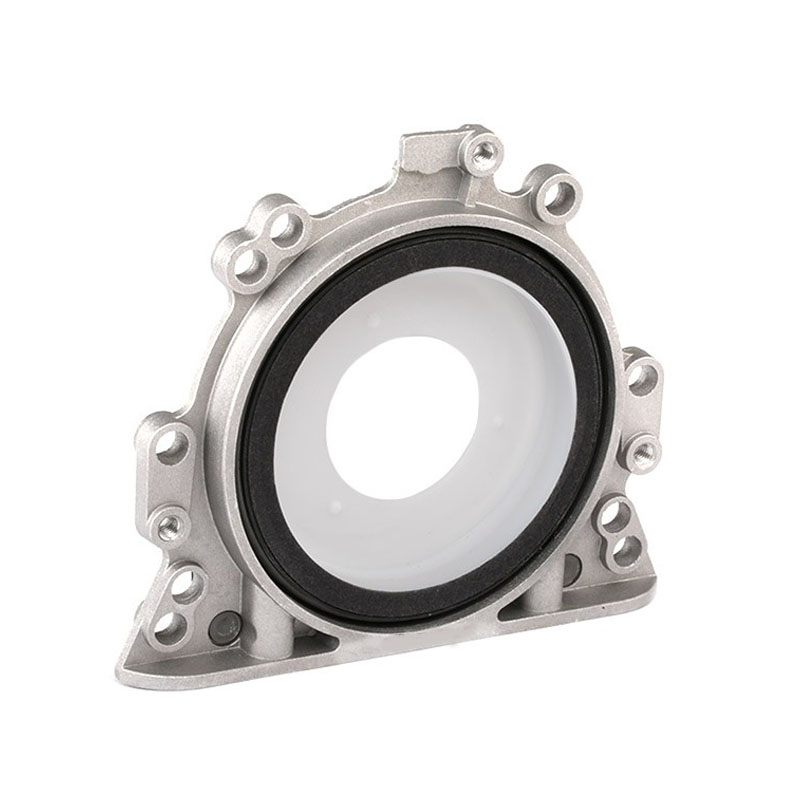Effective Solutions for PTFE Shaft Seals in Various Industrial Applications and Environments
Understanding PTFE Shaft Seals and Their Applications
PTFE (Polytetrafluoroethylene) shaft seals have become an essential component in various industrial applications due to their exceptional properties. Designed to prevent leakage of fluids along rotating shafts, these seals offer a unique combination of chemical resistance, thermal stability, and low friction, making them ideal for numerous environments.
Understanding PTFE Shaft Seals and Their Applications
In addition to chemical resistance, PTFE seals exhibit outstanding thermal stability. They can withstand extreme temperatures ranging from -268°C to +260°C (-452°F to +500°F) without losing their functional capabilities. This temperature resilience allows PTFE shaft seals to be utilized in a wide variety of applications, including machinery that operates in high-temperature environments like oil refineries and power plants. The ability to maintain performance under heat reduces the risk of seal failure and extends the lifespan of the equipment, contributing to lower maintenance costs and enhanced operational efficiency.
ptfe shaft seal

Another noteworthy feature of PTFE shaft seals is their low friction coefficient. In applications where rotating shafts are involved, excessive friction can lead to wear and tear, increasing the likelihood of seal failure. PTFE’s low friction properties minimize wear on both the seal and the shaft, thereby prolonging the service life of the components and improving overall system efficiency. This characteristic is especially beneficial in automotive and aerospace applications, where precision and reliability are paramount.
Moreover, PTFE shaft seals are easy to install and require minimal maintenance. Their design can often accommodate various shaft sizes and configurations, making them a versatile choice for different machinery setups. This ease of use translates to reduced downtime during installations or replacements, which is crucial for maintaining productivity in any operation.
While the benefits of PTFE shaft seals are apparent, it is also important to consider their limitations. For instance, PTFE seals are not always suitable for low-speed applications due to potential wear caused by the lack of self-lubrication at lower speeds. Additionally, while they are robust in many environments, specific applications may require seals designed for higher pressures or specialized compounds to provide enhanced performance.
In conclusion, PTFE shaft seals offer a remarkable solution for sealing applications in various industries, combining chemical resistance, thermal stability, and low friction properties. Their ability to withstand harsh environments while maintaining reliability makes them indispensable in modern engineering. As industries continue to evolve and adopt advanced technologies, the demand for robust and efficient sealing solutions like PTFE shaft seals will undoubtedly grow, solidifying their role as vital components in mechanical systems worldwide. Whether enhancing safety in chemical processing or improving performance in automotive applications, PTFE shaft seals stand out as a top choice for engineers and manufacturers looking to optimize their operations.
-
Understanding the Importance of the Crankshaft Oil Seal in Engine Performance
News Jun.16,2025
-
The Unsung Heroes of Engine Protection: Understanding Automotive Shaft Seals and Oil Seals
News Jun.16,2025
-
Keeping the Engine Tight: The Role of Crankshaft Seals and Gaskets in Oil Control
News Jun.16,2025
-
Complete Protection in Harsh Conditions: A Deep Dive into Cassette Seals
News Jun.16,2025
-
Choosing the Right Oil Seal: A Guide to Trusted Brands and Suppliers
News Jun.16,2025
-
Advanced Sealing Technologies: Exploring the Range of Modern Oil Seals
News Jun.16,2025
-
Your Essential Guide to Car Repair Kits: From Rust to Dings
News Jun.13,2025
Products categories















